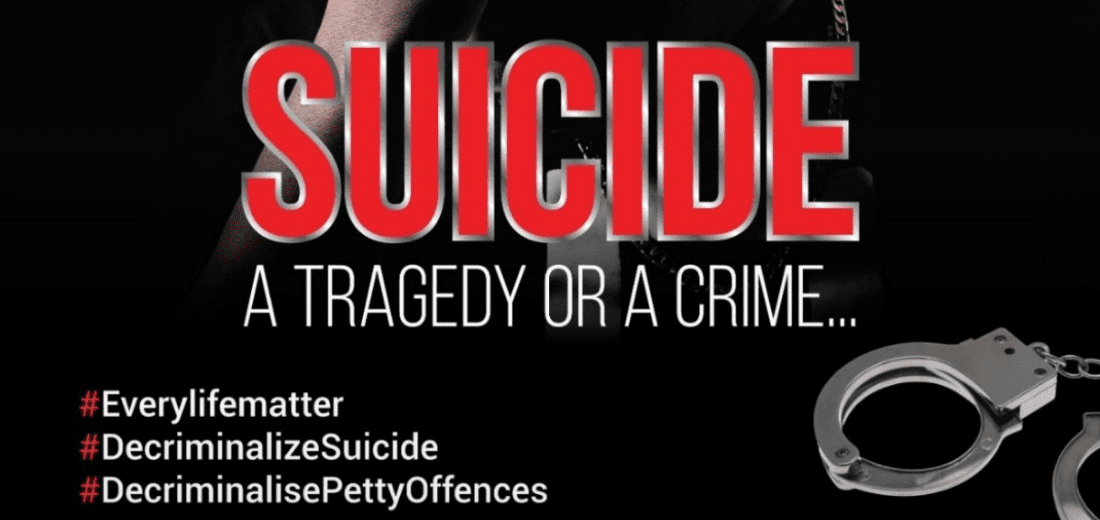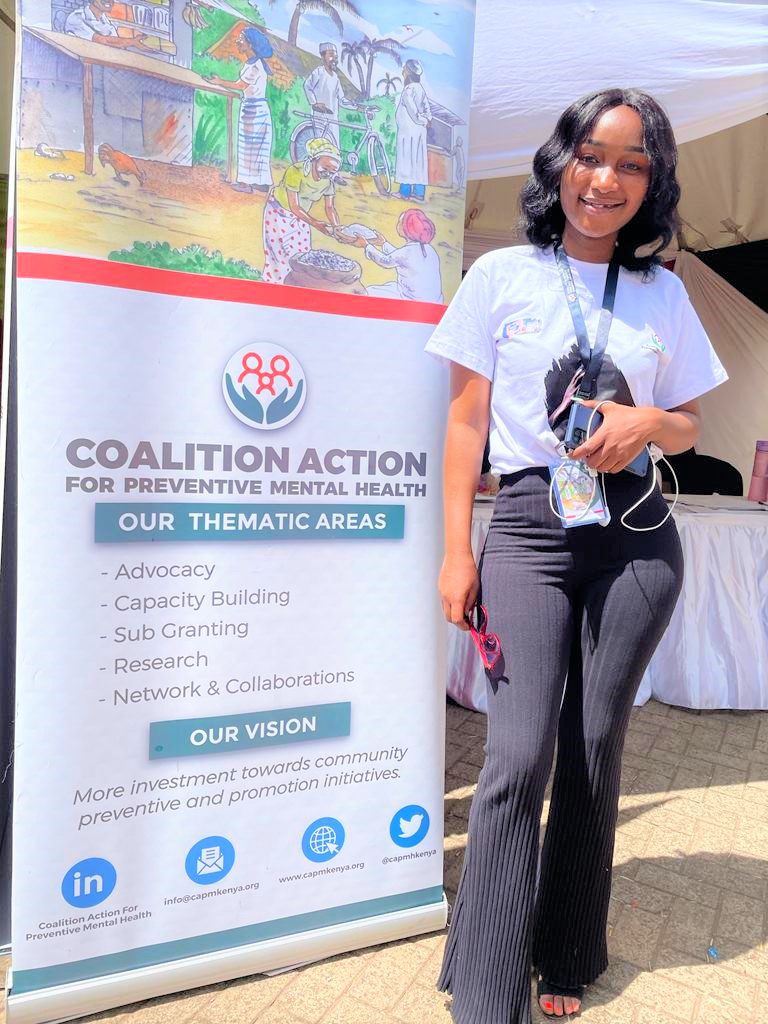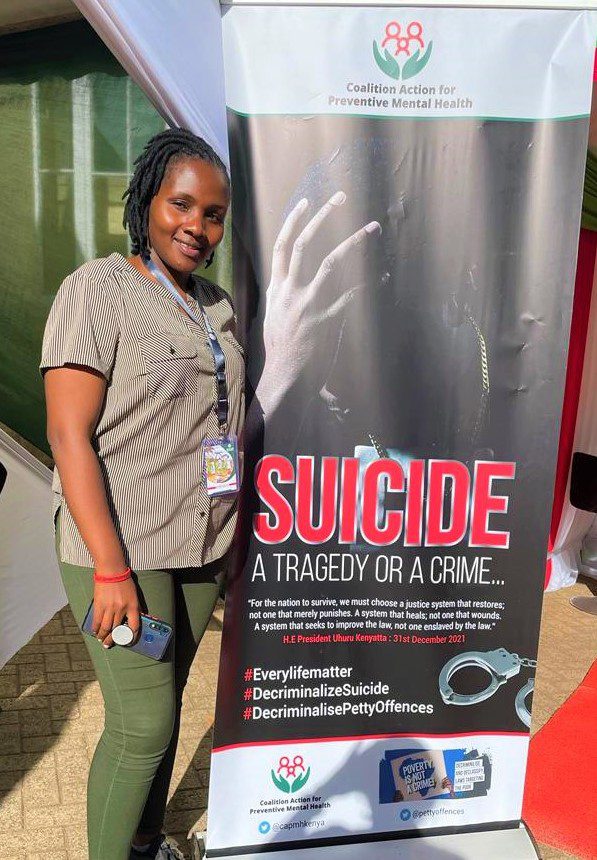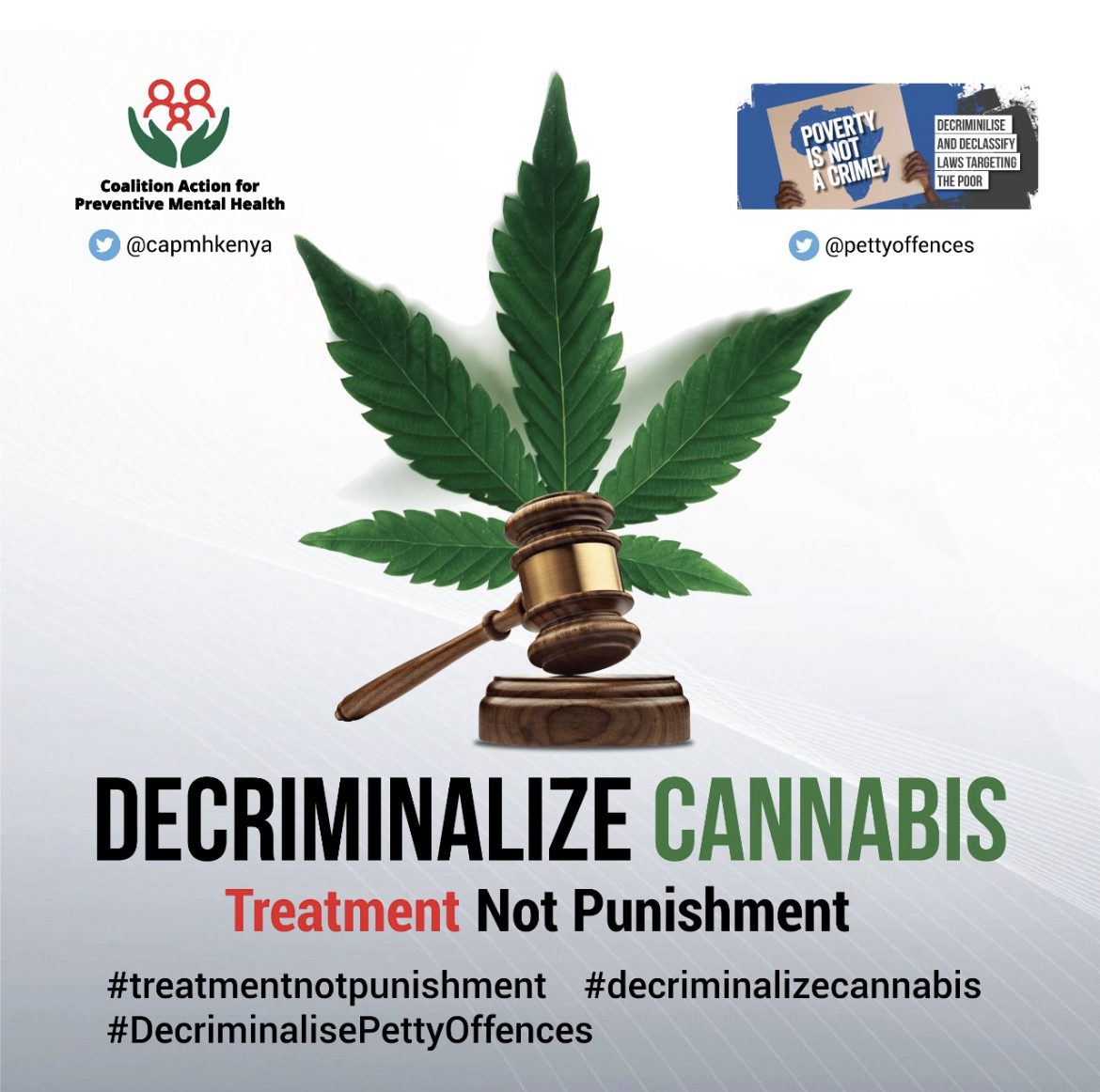
Mental health conversations are finally moving from small circles to worldwide platforms. Even so, to some extent, society in general remains indifferent to mental health challenges. This very emotive subject is still mundanely understood, stigmatised and linked to primitive ideas.
We live in a world where mental health and mental health illnesses are still viewed as one by a majority of the populace. Where attempted suicide, if unsuccessful, will have you ending up in a prison cell instead of a mental health institution. Under Kenyan law, attempted suicide is a criminal offence, and upon conviction, one is sentenced to imprisonment for a term not exceeding one year, a fine; or both. Suicide is a subject many are afraid to talk about or acknowledge, but should this be the case? Statistically, it is the third leading cause of death for children between the ages of 10 and 14, and second leading for those between 15 and 34.
Question is, have the current suicide policies compounded the issue, leading to more successful suicide cases? More importantly, should suicide be classified as a tragedy, a crime or a choice?
I’m joined by Eadie Nungari C.E.O. of Tuido Group, Soony Wendy, Counselling psychologist and Co-founder of Psychology for Better Living and Rhoda Kithure, Clinical psychologist and Mental skills coach specializing in young adults in sports and gambling, all from the Coalition Action for Preventive Mental Health Kenya to answer these pertinent questions.
Back to the Basics
To bring out a clear picture of why mental health should be held with the same utmost importance as physical health, Soony, a counselling psychologist and co-founder of Psychology for Better Living, takes us to the basics, with a clear definition of what mental health is.
“It is the emotional, psychological, social well-being that enables people to cope and handle stress, interpersonal relationships, decision-making, realise their abilities, learn and work well. There cannot be health without mental health,” she says.

She adds that to drive progressive conversations or reforms around mental health, it is critical to have a basic understanding of the fundamentals. In her experience, she affirms that people find it difficult to distinguish between mental health and mental health illnesses. These two terms are often interchanged, yet they differ in meaning.
“When you mention mental health, most people automatically think of depression as it is synonymously identified with it. Yet mental health generally describes your state of mind, how you feel, behave, and react. On the other hand, mental illnesses are diagnosed as conditions that affect thoughts and behavior.”
“Suicides and suicidal thoughts have long been linked to mental health. Successful or not, the leading root cause for it is depression, which is just one of over three hundred mental health disorders. Risk factors include, but are not limited to, schizophrenia, where patients hear voices telling them to end their lives; physical disorders; psychosocial factors like loss of pleasure in life and hopelessness and substance use disorders including alcohol.”
“Some suicides are impulsive acts due to anxiety from financial or academic difficulties, relationship problems, harassment, and bullying. It’s important to note that those who have previously attempted suicide are at a higher risk of future attempts. The Coalition is also championing for the name change from ‘commit suicide’ to ‘died by suicide,’ to remove the negative connotation,” she concludes.
Instigators of mental health problems
We have seen a surge in mental health-related problems due to the increase in social, political, economic, and cultural pressures; as well as the ongoing Covid-19 pandemic and its effects.

Eadie Nungari
Nungari, CEO of Tuido Group and board member at the Coalition says, “Just like other diseases that have affected the human race, mental health is a pandemic on its own. We are living in a volatile ‘dystopian’ time which has exposed the fragile state of mental health in our country. Kenya is making tremendous strides to re-evaluate the approach to both prevention and treatment. No one is immune to it. The problem we still face among some demographics is ignorance, and denial of the subject. It only dawns on them that it is serious after they have lost a loved one, by that time it’s too little too late,” Nungari states.
The Warning Signs
Rhoda, a clinical psychologist and mental skills coach specialising in young adults in sports and gambling says, “Mental health disorder manifestations can be difficult to detect. The signs hide under social behaviors such as excessive alcohol consumption and even gambling. So at times the symptoms may be overlooked since the condition is still viewed through a negative lens. It’s not uncommon to see parents of victims in denial, blaming it on bad spirits.”

“In the African context, witchcraft remains a natural scapegoat through which people’s relationships with unpleasant events are explained. It is a ready and stereotyped means of reaction to such situations. One method of breaking down cultural barriers is to localise the dialogue around mental health. To be understood, communication must be adapted to the audience’s context, which will ensure we overcome any language barriers and tap into the design nuances that characterise a culture. People come from different backgrounds and as such, we should be in sync so that we realise the improvements we want to see. There will be a ripple effect as they will also be able to have this discussion with their peers. It also offers us the ability to comprehend the context and devise tactics that will aid us in our journey as mental health practitioners.”
“As someone who works in the sports industry, for example, the current systems are not very welcoming of a mental health diagnosis. When a person is diagnosed with mental illness, there’s a probability they may not be able to participate in sports again, so they choose to keep it hidden. These are the structures we’d like to see overhauled as well as a shift in our perceptions of mental illness as a sign of weakness. From a religious, cultural, and political standpoint, mental health requires a multidimensional approach,” she adds.
Cannabis and the mental health conversation
“As CAPMH Kenya, we support work and research carried out on the industrial and medicinal benefits of cannabis. It is categorised as a schedule 1 drug, those with no currently accepted medical use and a high potential for abuse. This is a false narrative since it can be used as a treatment option for some mental health conditions. There is both misinformation and disinformation around the plant,” Nungari affirms.
“The history of the plant alone is a social issue, and a lot of people have lost their lives and livelihoods as a result, but that is another discussion. We realised that people who struggle with mental health use cannabis for different reasons. It does ‘affect’ people with a predisposed mental condition, bringing such disorders to the surface, while for others it offers some form of relief. Its users prefer not to disclose they are using it, out of fear of being perceived as lawbreakers. This makes it very difficult for mental health care providers to avail the right treatment to such individuals.”

As a country, we are taking the right steps towards reforming and availing mental health care and treatment. However, we are not helping patients feel safe enough to seek help for the same. It’s a form of gaslighting, telling people it is okay to not be okay, then turning around and punishing them for not being okay (unwell). It’s a catch 22 situation. Being caught with cannabis could get you up to eight years (formerly fifteen) in prison. It is a petty offence that requires treatment, not punishment. These people should be taken to a rehabilitation centre or a mental health institution, not a prison cell.
All three ladies assert that mental health is very broad and the dynamics are never the same.
Obsessive Compulsive Disorder (OCD) should not be treated the same as Post-Traumatic Stress Disorder (PTSD) or Bipolar disorder. That is why as the Coalition Action for Preventive Mental Health, they work concurrently with different players, handling different mental health topics, since they are all working towards the same goal. In addition, people must learn to address and overcome self-stigma by accepting both the diagnosis and the treatment. Remember that you are not alone, talk openly about mental health and alter your own stigmatizing beliefs. It’s also good to seek support. If you are not comfortable with your diagnosis, seek a second opinion but don’t fight it.
“Kenya is currently in an electioneering period. We need to be aware of ourselves, what we want for our future and not easily swayed into actions that would set the country back politically, socially and economically. Aspiring politicians should seek help for their mental health, so that they are better equipped with healthy coping skills to deal with the stress of campaigning for a political seat, and for any eventuality. They all want to win, but are they mentally prepared if they lose?”
“We should learn to be gentle with ourselves and know that we are enough. As a country, we should also ‘normalise’ therapy. We can all be compelled to do something around this conversation, because when you know better, you do better. This is a personal problem, as much as it’s a global problem,” Nungari concludes.
COALITION WEBSITE: https://capmhkenya.org

Leave a Reply